Seniors and Hygiene: Addressing Common Challenges
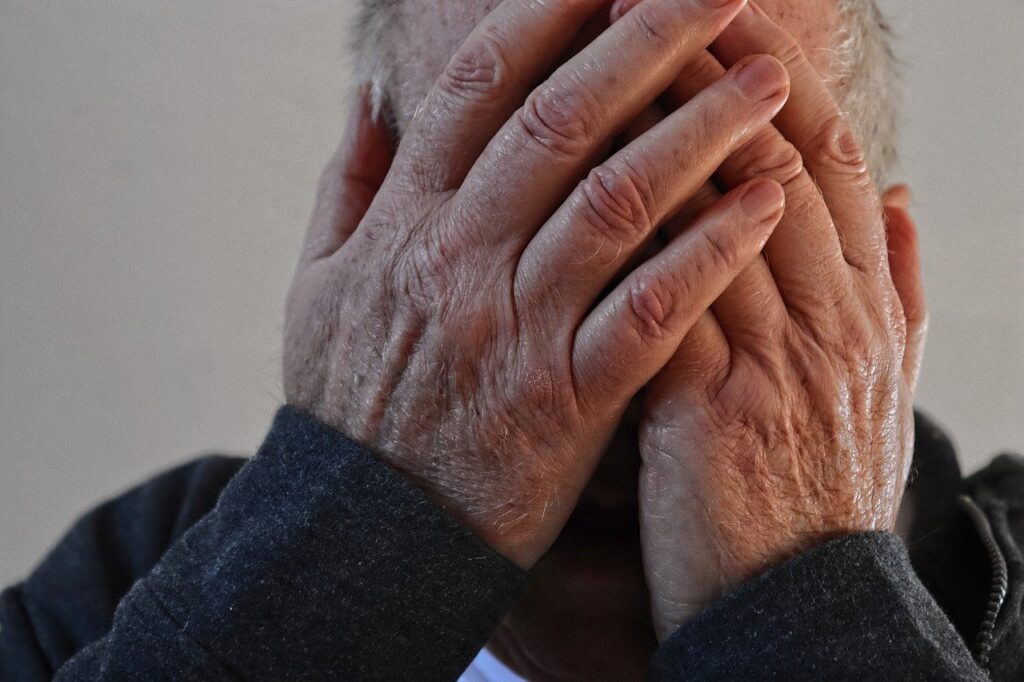
Personal hygiene is a vital aspect of daily life, but for many seniors, maintaining proper hygiene can become increasingly difficult due to physical limitations, cognitive decline, or chronic health conditions. From bathing and grooming to managing incontinence, seniors may face a variety of hygiene challenges that can impact their overall well-being. However, with the right strategies and support, challenges associated with seniors and hygiene can be effectively addressed. This article explores common hygiene difficulties experienced by seniors and offers practical solutions to help them maintain a healthy and comfortable lifestyle. Bathing Difficulties Bathing can be a simple daily task for most people, but for seniors with limited mobility, fear of falling, or difficulty reaching body parts, it can pose significant challenges. These difficulties can impact self-esteem, comfort, and overall well-being. To address these challenges, various solutions can be implemented. Assistive devices, such as grab bars, shower chairs, and shower benches, can provide support and stability during bathing. Adaptive techniques, such as sponge baths or seated baths, can also make bathing more manageable. Additionally, safety modifications to the bathroom, including non-slip mats and adequate lighting, can help prevent accidents and reduce anxiety. Grooming Challenges Grooming is an essential aspect of personal care, but for seniors with limited mobility or dexterity, it can be a daunting task. Difficulty with hair, nails, and oral hygiene can impact self-esteem and overall well-being. Various solutions are available to address these challenges. Assistive tools, such as nail clippers, electric razors, and toothbrush holders, can make grooming tasks easier and more manageable. Adaptive techniques, such as seated hair care or assistance with brushing teeth, can also be helpful. Additionally, professional grooming services, such as mobile hairdressers or podiatrists, can provide specialized care and support. Incontinence Incontinence, the involuntary loss of urine or stool, is a common condition among seniors that can significantly impact their quality of life. Understanding the different types, causes, and effective management strategies is essential for maintaining comfort and independence. Types of Incontinence: Urinary incontinence (stress, urge, overflow, mixed) Fecal incontinence Causes and Risk Factors: Age-related changes Medical conditions Lifestyle factors Management Strategies: Bladder training Kegel exercises Absorbent products Skin care Skin Care As we age, our skin undergoes natural changes that can make it more susceptible to dryness, irritation, and other skin problems. Seniors may experience common skin issues such as dry skin, rashes, and pressure ulcers. These challenges can affect comfort, appearance, and overall well-being. Regular skin inspections are crucial for identifying and addressing potential skin problems early on. By examining your skin regularly, you can detect any changes, such as redness, dryness, or sores, and take appropriate action. To maintain healthy and radiant skin, caregivers need to help seniors prioritize proper skin care. Here are some tips: Moisturize regularly Use sunscreen Avoid harsh products Stay hydrated Prioritizing Personal Hygiene: A Key to Overall Well-being Maintaining proper personal hygiene is essential for seniors’ overall health and well-being. Addressing common hygiene challenges, such as bathing difficulties, grooming issues, and incontinence, can significantly improve comfort, self-esteem, and quality of life. By implementing strategies like assistive devices, adaptive techniques, and professional support, seniors can overcome these challenges and maintain their independence. Sencura caregivers are dedicated to providing personalized assistance with personal hygiene tasks, including bathing, grooming, and incontinence care. Our compassionate and experienced caregivers can offer the support and guidance needed to help seniors manage these challenges effectively. If you or a loved one are facing difficulties with personal hygiene, don’t hesitate to seek professional help and support. Sencura is committed to providing high-quality in-home care services that prioritize the well-being of our clients. Let us help you maintain a healthy and comfortable lifestyle.
The Importance of Personal Hygiene Services for Seniors
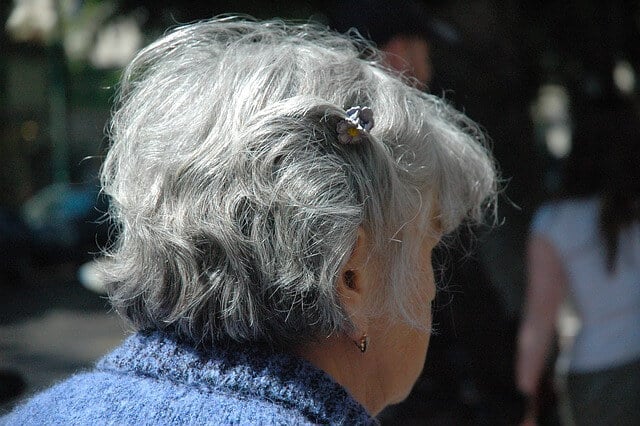
By dialing the provided phone number, you consent to receive SMS messages Call : 703-880-2547 By dialing the provided phone number, you consent to receive SMS messages The Importance of Personal Hygiene Services for Seniors Maintaining good personal hygiene is essential for everyone at every age. It helps us stay healthy, feel confident, and participate fully in life. However, as we get older, everyday tasks like bathing, dressing, and grooming can become more challenging. Reduced mobility, arthritis, or other health conditions can make it difficult for seniors to maintain the level of hygiene they once could. This can lead to a whole host of problems, both physical and emotional, unless addressed with reliable personal hygiene services for seniors. The Benefits of Personal Hygiene Services In-home personal hygiene services offer valuable assistance for seniors who face challenges with daily hygiene tasks. These compassionate caregivers provide the support needed to help seniors maintain: Physical Health: By assisting with bathing, showering, and other hygiene practices, these services can significantly reduce the risk of infections and skin breakdown. This improves overall physical health and prevents potential complications. Mental Well-being: The confidence and dignity that comes with feeling clean and well-groomed can have a profound impact on a senior’s mental well-being. Personal hygiene services promote self-confidence and a positive self-image, fostering a sense of control and reducing feelings of isolation. Independence: Perhaps the most significant benefit is the ability for seniors to remain independent in their own homes. Personal hygiene services allow seniors to continue living comfortably and safely in familiar surroundings, fostering a sense of autonomy and control over their lives. Choosing a Personal Hygiene Service Provider With so much at stake, choosing a qualified and compassionate personal hygiene service provider is crucial. Here are some key factors to consider when making your decision: Experience and Qualifications: Seek out providers with caregivers who have experience working with seniors and possess the necessary qualifications. Look for certifications in personal care assistance or related fields. Services Offered and Customization: Ensure the provider offers a range of services to meet your loved one’s specific needs. Look for companies that create personalized care plans tailored to individual preferences and limitations. Safety Measures and Fall Prevention: Safety is paramount. Choose a provider that prioritizes fall prevention through training and the use of appropriate equipment. Ask about their safety protocols and how they ensure a risk-free environment. Communication and Progress Reports: Clear communication is essential. Choose a provider that encourages open communication between caregivers, family members, and seniors. Regular progress reports will keep you informed of your loved one’s well-being and allow for adjustments to the care plan as needed. The Lasting Impact of Personal Hygiene Services Maintaining good hygiene is a cornerstone of senior health and well-being. When challenges arise, in-home personal hygiene services offer a powerful solution. These services not only promote physical health by reducing infection risks but also foster mental well-being by boosting self-confidence and independence. For families, these services provide invaluable peace of mind, knowing their loved ones are receiving the compassionate care they deserve, allowing them to live a brighter, healthier life in the comfort of their own homes. If you or a loved one are looking for experienced In-Home Care in Vienna, VA, contact SenCura at 703-880-2547. We provide in-home senior care in Northern Virginia. Professional Memberships We are members of the following organizations.
The Signs of Severe Dementia in Older Adults: Recognizing Symptoms and the Role of Home Care Services
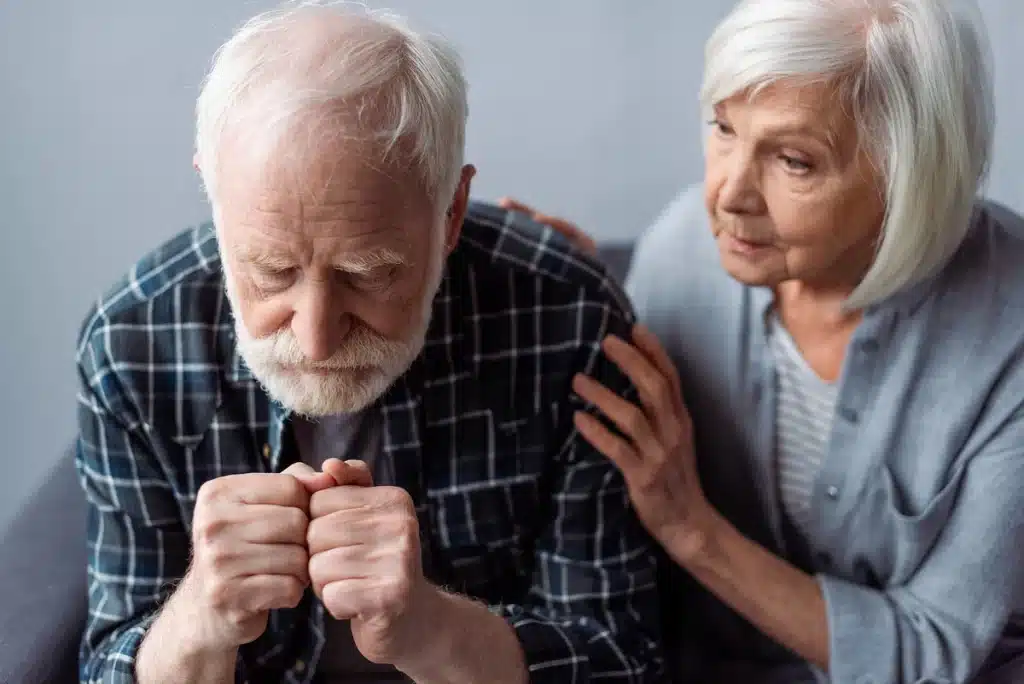
By dialing the provided phone number, you consent to receive SMS messages Call : 703-880-2547 By dialing the provided phone number, you consent to receive SMS messages The Signs of Severe Dementia in Older Adults: Recognizing Symptoms and the Role of Home Care Services Dementia is a progressive neurological condition that affects millions of older adults worldwide. Individuals may experience severe symptoms that significantly impact their daily lives as the disease advances. Recognizing the signs of severe dementia is crucial for caregivers and family members. Let’s explore the various symptoms to look out for and discuss the importance of home care services in improving the quality of life for those with severe dementia. Cognitive and Memory Decline Severe dementia often manifests through pronounced cognitive and memory decline. Memory lapses become more frequent and may interfere with daily activities. Individuals may need help to recall essential details such as names, places, or recent events. Additionally, they may need help with problem-solving, decision-making, and abstract thinking. Communication Challenges Communication difficulties are common in severe dementia. Individuals may struggle to express themselves clearly or understand conversations. They may need help finding the right words, repeating phrases or questions, or need help following instructions. Social withdrawal and frustration can arise because of these challenges, leading to increased isolation. Behavioral and Psychological Symptoms Severe dementia can bring about a range of behavioral and psychological symptoms. These may include aggression, agitation, restlessness, or wandering. Individuals may display mood swings, depression, anxiety, or paranoia. Sleep disturbances and nighttime confusion can also become more pronounced. Recognizing and managing these symptoms is crucial for maintaining a safe and supportive environment for the person with dementia. A decline in Activities of Daily Living (ADLs) As dementia progresses, the ability to perform activities of daily living becomes increasingly impaired. Individuals may struggle with bathing, dressing, grooming, and feeding themselves. They may also have difficulty using the restroom independently. These challenges necessitate the need for additional support and assistance. Importance of Home Care Services Home care services are vital in enhancing the quality of life for individuals with severe dementia. These services offer personalized care and support within the familiar environment of one’s home. Trained professionals can assist with daily activities, medication management, and personal hygiene. They can also monitor the person’s condition and promptly address emerging health concerns. Tailored Care Plans Home care services provide individualized care plans tailored to the unique needs and preferences of the person with severe dementia. These plans encompass a comprehensive approach encompassing physical, emotional, and social well-being. Caregivers work closely with families to develop strategies that maintain a routine, reduce anxiety, and promote engagement in meaningful activities. Respite and Support for Family Caregivers Caring for a loved one with severe dementia can be physically and emotionally demanding for family caregivers. Home care services offer respite and support, allowing caregivers to take much-needed breaks and attend to their well-being. This can prevent burnout, reduce stress, and ensure that caregivers can continue providing the best possible care to their loved ones. Recognizing the signs of severe dementia is crucial for family members to provide appropriate care and support. Home care services are essential in improving the quality of life for individuals with severe dementia, offering tailored care plans, respite for family caregivers, and a familiar environment. By understanding the symptoms and accessing the proper support, families can navigate the challenges of severe dementia with compassion, ensuring the well-being of their loved ones in their journey. If you or a loved one are looking for experienced Home Care in Alexandria, VA, contact SenCura at 703-880-2547. We provide in-home senior care in Northern Virginia. Professional Memberships We are members of the following organizations.
Home Care: Learning to Get Into a New Routine
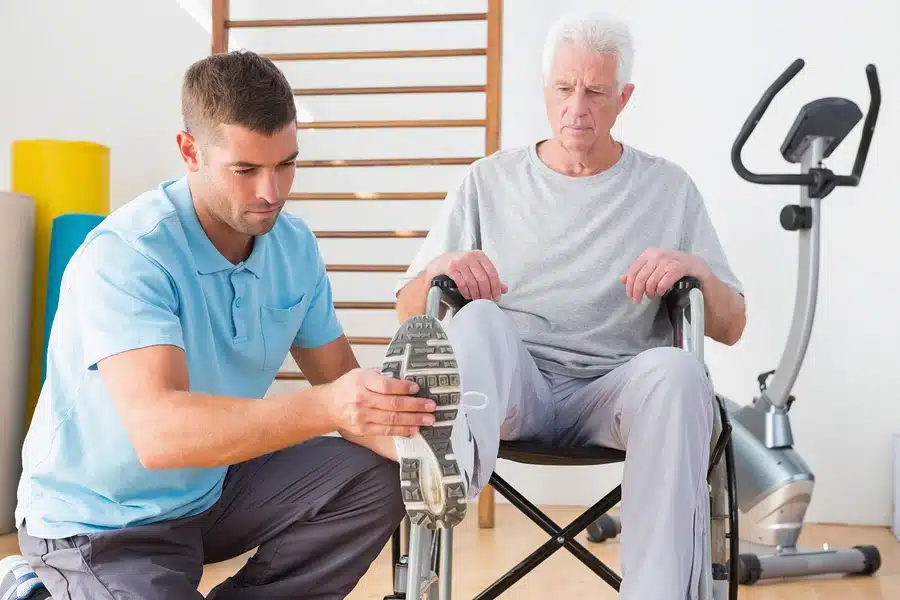
By dialing the provided phone number, you consent to receive SMS messages Call : 703-880-2547 By dialing the provided phone number, you consent to receive SMS messages Home Care: Learning to Get Into a New Routine Aging in place is not easy, but it can be done with the right help set in place. Your loved one should have home care or a family member to help them while they age at home. But their bodies may not be able to do everything they used to. When they find home care that works for them, it may take time to build a new routine. But how do you build a routine or return to one you once had? It sounds easy, but it’s very hard for some seniors to get back in the swing of things or find a routine they want to do. Here are some tips that may help you figure out how to get your loved one back into a healthy routine. Keep to a Good Sleep Schedule Sleep is one of the most important things your seniors can focus on. You may not think you do much during sleep, but it is crucial for your elderly loved one if they want to remain healthy and age in place. Sleep is crucial for seniors because it is vital in maintaining physical health, cognitive function, and emotional well-being. It helps support memory consolidation, tissue repair, immune system function, and overall quality of life in older individuals. If your loved one has not been sleeping well, it may be something that home care should help them focus on. This means having a good nighttime routine makes a senior feel stress-free and fall asleep easier. Limit How Much TV They Watch Too much screen time is bad for anyone, but especially for seniors. Excessive screen time can be detrimental for seniors because it can lead to sedentary behavior, associated with an increased risk of various health issues such as obesity, cardiovascular disease, and muscle weakness. Prolonged screen exposure, especially before bedtime, can disrupt sleep patterns and contribute to sleep disturbances in older adults. This doesn’t mean your senior loved one can’t watch movies; it just means they shouldn’t sit and watch hours or hours of TV or spend hours on any screen. Keep Mealtimes Regular Even if a senior’s day changes every day, home care can ensure their mealtimes are still around the same time every day. Having meals simultaneously every day helps regulate the body’s internal clock, known as the circadian rhythm, which can improve digestion and metabolism. Consistent meal timing can also promote better appetite control and stabilize blood sugar levels, which is particularly important for seniors in maintaining overall health and preventing conditions like diabetes. If your senior is struggling to cook on their own, this can be something that home care can help your loved one with. Get Dressed Every Morning One of the easiest ways to get back in the swing of things is to get up and dressed every morning. If your loved one needs help with this activity, it is vital to hire home care to help them get dressed in clean clothes. It’s a simple yet effective way to feel in control while sticking to a basic morning routine. If you or a loved one are looking for experienced Home Care in Fairfax, VA, contact SenCura at 703-880-2547. We provide in-home senior care in Northern Virginia. Professional Memberships We are members of the following organizations.
Fun and Healthy Snacks Your Elderly Loved One Should Start Eating
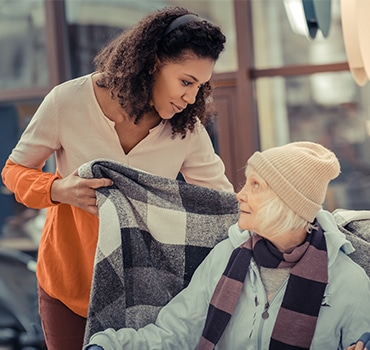
By dialing the provided phone number, you consent to receive SMS messages Call : 703-880-2547 By dialing the provided phone number, you consent to receive SMS messages Fun and Healthy Snacks Your Elderly Loved One Should Start Eating Some seniors don’t know that diet is essential, or maybe they do, but they no longer cook for themselves. Even if your loved one relies on senior home care to cook, they may need ideas for healthy snacks. Here are some of the best snacks to keep your senior loved one stocked up on. Kale Chips or Sweet Potato Chips It is so easy to go for heavily processed potato chips. Your senior loved one doesn’t have to cook them, and senior home care will always be able to find them in the grocery store. However, instead of going for the most unhealthy option, try finding kale chips instead. These have fewer ingredients and are more natural. Plus, it’s one of the best ways to sneak in extra vegetables without being too obvious and making them taste good. Kale benefits seniors because it is a nutrient-dense vegetable packed with vitamins, minerals, and antioxidants that support overall health and well-being. Its high vitamin K, calcium, and fiber content is particularly advantageous for bone health, helping to maintain bone density, and it offers a wide range of essential nutrients. If you don’t trust packaged kale chips, senior home care can help your loved one dry and bake kale with various seasonings. You can make them in multiple different ways. Try Sparkling Water Soda is filled with sugar and can cause more dehydration and other health problems. Soda typically provides little nutritional value, and its acidic nature can harm tooth enamel. It may also promote obesity and chronic conditions like type 2 diabetes. So, encourage your loved one to switch to sparkling or bubbling water instead of a soda. Most of these waters will have flavor options, or you can add fresh lime or lemon juice. This will allow them to get the same mouthfeel as if they were drinking soda, but it will have fewer calories and fewer diet issues. Use Mashed Avocado If your senior loves to dip vegetables in sauce like ranch or other dips in packages, swap it out for mashed avocado. This means they will get something high in healthy fats and full of minerals instead of something with little to no nutritional value. Mashed avocado can be added to healthy snacks like sandwiches, used as a dip for vegetables, and even added to other meals for texture, taste, and moistness. Eat More Dark Chocolate Your seniors may love chocolate, but milk chocolate isn’t the best for anyone. If you’re after sweet but healthy snacks, dark chocolate can benefit seniors. Milk chocolate has tons of fat and sugar, which makes it less of a healthy option for your senior loved one. Dark chocolate is filled with more antioxidants than milk chocolate, making it a healthier option for your loved one. It is something that senior home care can help your loved one manage, too. Eat Plain Greek Yogurt If you want a breakfast or snack idea for your senior loved one, choose Greek yogurt with granola and fruits. Greek yogurt has tons of vitamins and calcium that is great for your senior loved one. It’s easy to keep in the fridge and something your senior can whip together in just a few minutes. If you or a loved one are looking for experienced Senior Home Care in Alexandria, VA, contact SenCura at 703-880-2547. Providing in-home senior care in Northern Virginia. Professional Memberships We are members of the following organizations.
Elder Care Tips for Senior Dehydration
By dialing the provided phone number, you consent to receive SMS messages Call : 703-880-2547 By dialing the provided phone number, you consent to receive SMS messages Elder Care Tips for Senior Dehydration Most seniors are chronically dehydrated. As seniors get older they need to drink more water, but many drink less. Seniors are not drinking enough water. They can suffer very real health problems as a result of that. There are many reasons why seniors aren’t drinking enough water. Sometimes seniors just forget to drink water during the day. Some of the other common reasons why seniors aren’t drinking enough water include: Lowered thirst response. Health conditions that dampen appetite and thirst cues. Alzheimer’s or dementia where seniors can’t recognize when they are thirsty. Not liking the taste of water due to side effects from medication. Medications that take away the desire to eat and drink. Finding out the reason why seniors don’t want to drink enough water can help family members or elder care providers find ways to encourage seniors to drink more. Symptoms of Dehydration in Seniors Before focusing on why seniors are not drinking enough families and elder care providers need to know what the symptoms of dehydration in seniors are. The most common symptoms of dehydration in seniors include: Fatigue and weakness. Mood or personality changes. Infrequent urination Recurrent UTIs or bladder infections. Dizziness or loss of coordination. Dry mouth and/or a dry cough. Headache. Muscle cramps due to the loss of electrolytes through sweating. Chills or heat intolerance. Flushed skin. Getting Seniors to Drink More Water Family members or elder care providers who notice these symptoms in seniors should start by simply trying to get them to drink more water. Handing them a glass of water on a regular schedule and reminding them to drink it can help. So can trying other things to drink besides water. Seniors who don’t like the taste of water can drink other beverages to stay hydrated. But, seniors should stay away from beverages with caffeine. Caffeine can make dehydration worse. Some popular alternative drinks to water that can help seniors stay hydrated are: Herbal tea that is hot or iced. Water with fruit in it. Water with cucumber or mint in it. Flavored water that has sugar-free flavoring in it. Iced tea without caffeine. Cranberry juice, which can also prevent UTIs and bladder problems. Orange juice. Sparkling water. Dairy or dairy free milk. Trying new drinks can be a fun way to get seniors to drink more. Get creative! Try non-alcoholic punches, mocktails, and fancy drink recipes to make drinking a celebration. Getting More Hydration Through Food Some seniors really just don’t want to drink more water. When that happens seniors can get more of the hydration they need through the food they eat. Eating foods that contain a lot of water can replace lost fluids just like drinking water can. Their elder care provider can help them meal prep to ensure they’re getting the proper nutrition. Seniors can eat foods like cucumbers, citrus fruits, kale, salads, smoothies, and soups to get more water. Smoothies and homemade protein drinks are a great opportunity to add water, juice, and milk into a senior’s diet. Try different foods that have a lot of water to get your senior parent hydrated. If you or a loved one are looking for experienced Elder Care in McLean, VA contact SenCura at 703-880-2547. We provide in-home senior care in Northern Virginia. Professional Memberships We are members of the following organizations.
